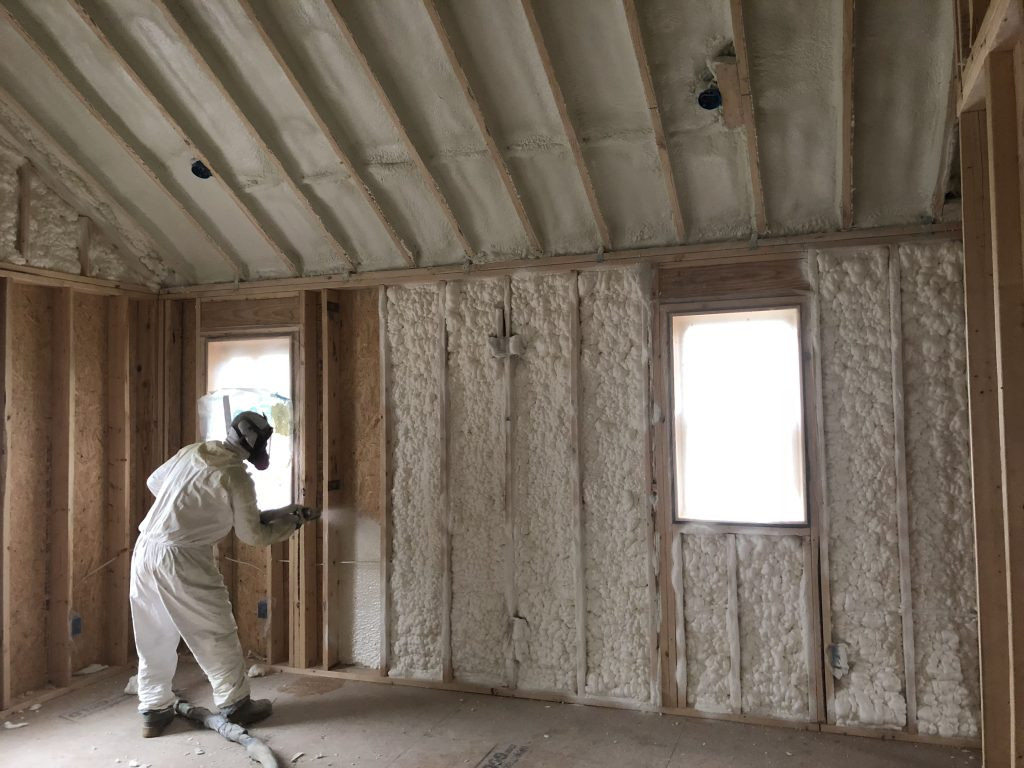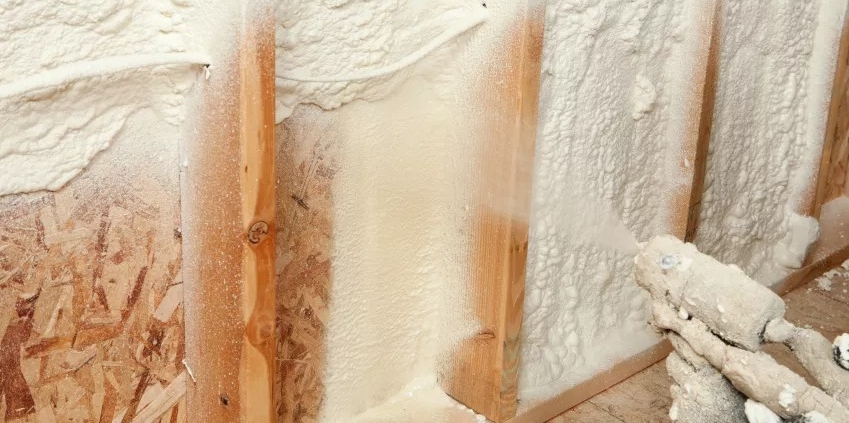What Makes a Great Insulation Company in Hot Springs, AR?
Over 40% of energy loss in residential and commercial buildings is linked to poor insulation. In a place like Hot Springs, AR—where seasonal temperature shifts put pressure on HVAC systems—insulation plays a direct role in monthly utility bills, indoor comfort, and long-term property value. A reliable insulation company doesn’t just fill wall cavities; it changes how a building performs year-round.
Spray foam insulation in Hot Springs has emerged as one of the most energy-efficient solutions available. According to the U.S. Department of Energy, buildings using spray foam insulation can reduce heating and cooling costs by up to 50%. But insulation performance depends on more than just the material—it hinges on the expertise, process, and integrity of the team behind it. Choosing the right provider in Hot Springs isn’t just smart; it’s necessary.
Qualities That Define a Top-Tier Insulation Company
Residents and business owners search for insulation solutions to improve comfort, reduce energy waste, and increase building performance. A quality insulation company must demonstrate consistent delivery of these outcomes.
Experienced Insulation Experts Lead Every Project
Years in business and training background matter. Insulation isn’t a surface-level job. Application depth, expansion ratios, curing times, and surface prep each affect spray foam performance.
Trained crews ensure that insulation adheres properly. Errors like off-ratio spray or poor ventilation can create long-term health and safety concerns. Experience allows teams to handle different construction types—wood framing, metal buildings, attics, crawl spaces—with accuracy.
Spray Foam Product Knowledge Must Be Extensive
The best local spray foam specialists understand the difference between open-cell and closed-cell foam, when to use each, and how climate affects the selection.
Open-cell foam is ideal for interior use where breathability matters. Closed-cell foam offers higher R-value and moisture resistance for basements or exteriors. Trusted spray foam brands ensure product consistency, certifications, and safer indoor air quality after installation.
Site Evaluation and Energy Analysis Are Always Included
Pre-installation analysis separates experts from general labor.
Thermal imaging or blower door tests help identify air leaks. Material type and thickness are tailored to the building’s use and condition. Proper planning prevents issues like trapped moisture or inconsistent R-value.

Safety, Efficiency, and Compliance Are Standard, Not Extras
Every insulation project—whether it’s home spray foam insulation or commercial retrofit—must meet strict safety and building code guidelines.
Proper Licensing and Insurance Protect Your Property
Any professional spray foam team should provide up-to-date documentation before work begins.
Errors in application can cause structural damage or even fire hazards. Insurance coverage guarantees accountability. State certifications prove training compliance with Arkansas and federal regulations.
On-Site Safety and Containment Matter
Safe job sites are efficient job sites.
Technicians should follow proper PPE protocols. Containment procedures reduce exposure to off-gassing or overspray. Post-installation ventilation helps clear airborne particles and cures foam faster.
Technology and Methods Define Performance Results
Modern insulation companies don’t just follow trends—they invest in technology that improves project results.
Advanced Equipment Makes the Difference
Spray rigs, proportioners, and mixing tools all affect final foam quality.
Faulty or outdated equipment can cause underperformance. Automated systems track spray rates, temperatures, and yield in real-time. High-performance insulation needs consistent material output.
Insulation Methods Influence Long-Term Outcomes
Foam insulation solutions should match the specific building environment.
Cold floors may need crawlspace sealing. Metal buildings require vapor barriers plus closed-cell application. Multi-zone homes benefit from hybrid methods using spray foam + batt insulation.
| Feature | Quality Insulation Company | Average Provider |
|---|---|---|
| Equipment Calibration | Daily testing before application | Occasional checks |
| Foam Quality Guarantee | Yes, with certified products | No clear foam sourcing |
| On-Site Crew Supervision | Full-time supervisor on-site | Unsupervised subcontracted labor |
| Energy Audit Included | Always included | Rarely offered |
| Building Code Compliance | Verified and up to date | May cut corners for speed |
Local Knowledge Improves Spray Foam Performance in Hot Springs
Insulation companies working in Hot Springs need to account for humidity swings, storm seasons, and diverse building ages.

Regional Understanding Drives Better Insulation Planning
Older homes may need prep to handle spray foam properly.
Vented attics or crawlspaces may need to be sealed or modified. Local insulation teams know how Arkansas weather impacts foam expansion and moisture behavior.
Building Type Affects Application Approach
Different buildings have different insulation needs.
Historic homes must retain structure integrity while gaining performance. Commercial properties often need both roof and wall applications. Pole barns or shops benefit from closed-cell applications for rigidity.
How to Spot the Wrong Kind of Insulation Company
Some providers may offer cheaper rates but cut corners that hurt your building’s efficiency and safety.
Warning Signs to Watch For
- No clear plan for moisture control or air sealing
- Vague quotes with no product details
- Crews unfamiliar with local code
- Absence of warranty or satisfaction policy
Professional foam insulation requires precision, accountability, and knowledge. Anything less is a risk to your property and wallet.
What Spray Foam Insulation Offers to Property Owners
Spray foam isn’t just a product—it’s a building upgrade that changes the way a space retains temperature and resists outside elements.
Long-Term Cost Savings
Energy-efficient spray foam reduces heating and cooling costs year-round.
Fewer HVAC cycles mean less equipment wear and fewer repairs. Utility savings are visible in the first season post-installation.
Moisture Resistance and Air Sealing
Foam fills every gap, unlike fiberglass or cellulose. This reduces:
- Drafts and hot/cold spots
- Mold development from trapped moisture
- Outside noise intrusion
Environmental Benefits
Eco-friendly insulation reduces total energy demand.
Spray foam lowers carbon footprint through efficiency gains. Most brands now feature low-emission and non-ozone-depleting formulas.
Ready to Achieve Energy-Efficient Indoor Performance?
Spray foam insulation changes how buildings perform across seasons. It improves comfort, controls moisture, and drives down energy usage.
LMC Insulation provides reliable spray foam services in Hot Springs, AR, and surrounding areas. Each project is handled by experienced spray foam teams using high-performance insulation methods and trusted spray foam brands.
Whether you’re a homeowner, building manager, or facility operator, LMC Insulation supports results-driven projects with local insight, expert crews, and advanced insulation methods.
Call (479) 351-6175 or email michaud@lmcinsulation.com to schedule an assessment with local insulation specialists today.
FAQs
How long does spray foam insulation last?
Spray foam insulation can last over 30 years when properly applied. It doesn’t sag or settle like traditional materials, keeping its thermal resistance intact.
Is spray foam safe for homes with kids or pets?
Yes. After curing—usually within 24 hours—spray foam is inert and safe. Ventilation during and after installation is key to ensuring indoor air quality.
What areas of a building benefit most from spray foam?
Attics, crawlspaces, rim joists, and exterior walls are prime locations. These zones account for most energy loss in homes and small buildings.
How do I know if I need insulation upgrades?
Signs include uneven temperatures, high utility bills, and frequent HVAC use. An energy audit or thermal imaging scan can confirm heat loss areas.
What’s the difference between open-cell and closed-cell spray foam?
Open-cell is softer, allows vapor to pass, and works well for interior walls and sound control. Closed-cell is rigid, water-resistant, and better for exteriors or basements.
Reviewer:Samuel Harris has worked across various roles in spray foam insulation over 11 years. His review focused on how businesses can better present their services to both new and returning clients.



Leave a Reply
Want to join the discussion?Feel free to contribute!